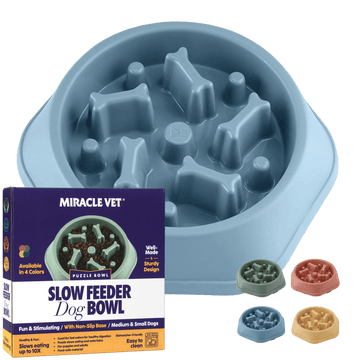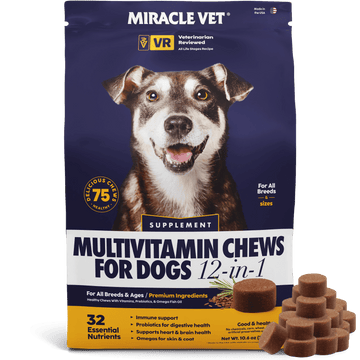Food allergies in dogs are more common than people realize. Unlike humans, dogs will not grow out of a food allergy or intolerance so you will need to identify and treat your dogs food allergy to keep them comfortable and well.
How do I know if my dog has a food allergy?
Food allergies can manifest in a number of ways, common signs of an allergic reaction are:
- Increased scratching
- Constant licking
- Itchy, red, moist skin
- Itchy, runny eyes
- Chewing at the feet
- Scratching or rubbing the face
- Itchy back or base of the tail
- Sneezing
- Diarrhea
- Vomiting
- Hair loss
- Hot spots
- Ear infections
Any or all of these symptoms could indicate an allergy, however you will need to get this confirmed by your vet before you start to isolate foods that may be the cause.
Diagnosing a Dog Food Allergy
Your Vet may conduct a RAST test (radioallergosorbent test) or a serum IgE test, these are blood tests that identify your dog's reaction to various antigens.
You may also be recommended to try an elimination trial, removing certain foods to see if the symptoms improve then re introducing as a test to determine if that was the cause of the symptoms.
The most common antigens that dogs are allergic to are proteins such as dairy, beef, chicken, chicken eggs, soy, or wheat gluten. When your dog eats these proteins they may develop symptoms as their antibodies react to the antigens.
If a dog already has a food allergy it is possible for them to develop further allergies, especially if not treated. It is important to keep an eye on any changes in your dog's behavior and comfort and be aware of the signs of allergies, especially as your dog gets older or if you change their food.
How do I control my dog's food allergies?
Once your dog's allergy has been confirmed you will need to adapt to keep them healthy and comfortable. Most allergies will cause discomfort but some reactions may be quite severe and require medical treatment.
The best way to treat your dog's allergies is to avoid foods that contain the antigen they react to.
Treating your dog's nutrition and diet with foods such as Allergy blocking and Immune boost chews and removing the foods they react to will present any reactions and your dog will feel healthier and happier.
Allergies are an immune response to antigens, so another way to help control allergies is to keep your dog's immune system boosted. If your dog is recovering from illness or is run down with poor nutrition then they will be more likely to have a severe allergic reaction.
Keeping your dog healthy and their immune system strong will help combat allergies and reactions.
Make sure they are getting all the nutrients they need with Multivitamins for dogs.
How long does it take for allergies to clear up in dogs?
If your dog has a food allergy then it may take up to 8 weeks for the food proteins to be completely eliminated from the body.
Removing the proteins from the diet that your dog is allergic to will see improvements in a few days but for symptoms to go completely it will take time.
Other types of dog allergies
If your dog is exhibiting a lot of these symptoms, it may be down to a food allergy but it could also be an allergic reaction to something else.
The most common symptom of an allergy is allergic dermatitis, where the skin is itchy and red, whilst a food allergy can cause this, they may also be allergic to fleas or an environmental factor (atopic).
Atopic allergies could be a reaction to pollen, dust, mold or any external factor so it is important to rule these out before assuming a food allergy and removing food groups.
A less common reaction to allergies is hives and swelling of the face. Swelling usually indicates a severe reaction but is not fatal, hives are a more delayed reaction and can develop hours after exposure to the antigen, both of these can be treated with antihistamines.
The most deadly reaction to an allergy is anaphylactic; in the same way a human can have a severe reaction to a substance, so can a dog.
These reactions are often due to an insect bite or introduction of a chemical substance and cause the throat to close up, in the same way a human would treat with an epi pen a dog would need the same immediate treatment. Fortunately these reactions are very rare.
With all allergies a healthy immune system is your dog's first defence.
Get the latest dog advice straight to your inbox and get $8 off your order by signing up to our newsletter.









